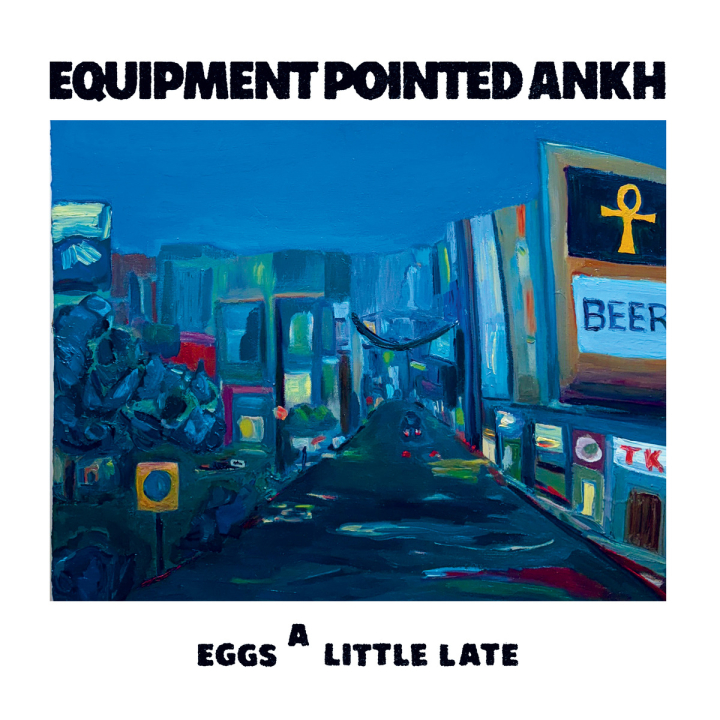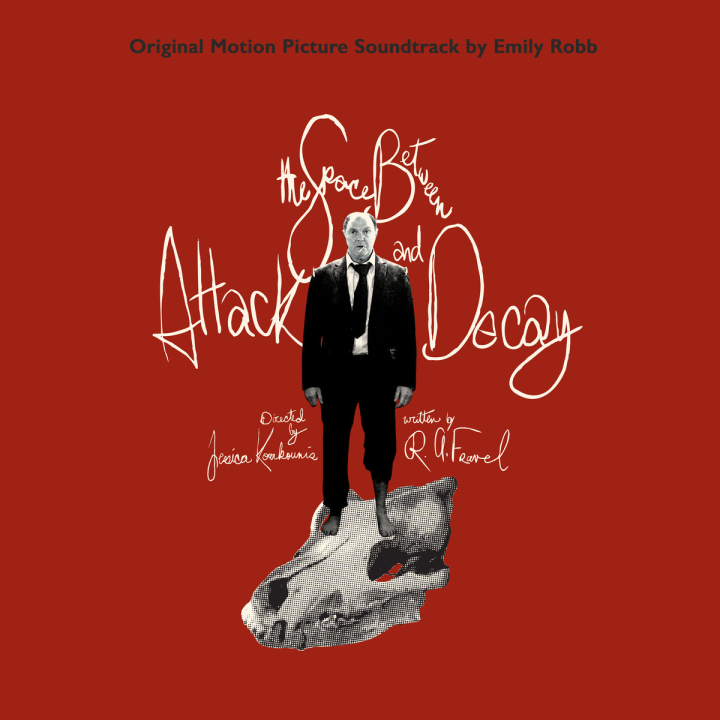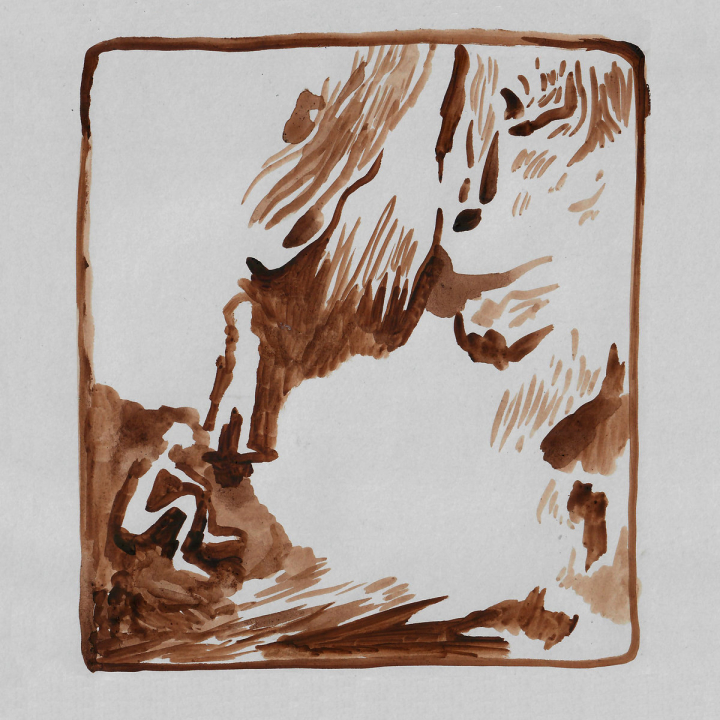In a time when cleverness is prized over belly-busting fun, in a musical landscape that worships genre over invention, and in a world increasingly begging computers to think on our behalf — Equipment Pointed Ankh’s fifth studio album Eggs A Little Late (out 11/28 via Philly’s indomitable Petty Bunco label) arrives an abundantly refreshing gift, truly funny and smart.
Recorded in bandleader Jim Marlowe’s studio End of an Ear (Louisville, KY) off and on over the last three years, the core Ankh crew (Marlowe, Chris Bush, Dan Davis, Ryan Davis, Shutaro Noguchi) gathered when they were able to get serious about play, along with some new and returning guests (Eric Lanham, Jeannine Lonardo, Trevor Nikrant, Jenny Rose, Ryan Swigart, Ben Traughber and Seth Manchester.) How do so many people (having this much fun) make a record so singular and cohesive? I don’t know, exactly, but I’ve heard a few rumors. Dan Davis once told me that Ankh operates with a radically democratic process: no single part stays unless there is unanimous enthusiasm for it. If any one person doesn’t dig any one cowbell hit, it’s cut — and so the bonsai is trimmed.
Listening to these miracles of tracks, I can hear that balance of freedom and restraint. Music made in this spirit (jamming, free improv, whatever you want to call it; Roscoe Mitchell called it “composing in real time”) often feels like it can percolate forever, occasionally over boiling. Ankh’s recordings never come close — they glint with the inexhaustible glee of discovery, but there’s a precision to their vision. Primordial, yet locked in. These folks listen as well as they play. It’s a patient, coordinated chaos — rare as synchronized fireflies.
Two standout tracks - “A Spectral Math” and “A Single Shot of Metabolism Between Us” - feature Jenny Rose reading poems written by Ryan Davis and Marlowe which range from the absurd and funny to sweetly touching. It’s the perfect mast of language to channel the winds of these uncharted sonic voyages, and Rose’s readings are gently bewitching. Elsewhere, EPA’s melodies take the lead as if they, too, are a poem — steered by a clear inner logic that’s headed out, out, but welcomes you along.
You may ask how a (mostly) instrumental record could be funny. Well, you could start by reading the titles. But you could also listen to the buoyant opening track “Eggs A Little Late” and be shocked by just how deliriously devious an organ riff can be. Then there’s the fact that the most undeniably pretty song on the record, “M’ladies,” is called that—and that it features what could only be the sound of a person schlepping around cardboard boxes, their phone ringing mid-struggle as a piano tinkles pensively. It’s surprising but somehow inevitable, the sense of humor. But there’s also a persistent feeling of longing in the melodies and chord voicings—a spectral longing. Each sound has boundlessly struck out on its own, which is paradoxically what tethers it to the others, suspending them all in some kind of disturbing grace. The way I see (hear) it, EPA operates as a chucklehead network of mycelium — the way trees talk underground — communicating with a primal understanding that my words can only wildly gesture at.
Really, I mostly have questions: how exactly do fireflies decide when to start blinking together, all at once? Is there a cue for that? How can a synthesizer sound like it’s falling down stairs? What kind of strange angels turn on a microphone in front of a pile of cardboard? A deep force of intuition and trust is clearly guiding the benevolently bizarre minds of EPA — and we should all be taking notes.
-Lou Turner












